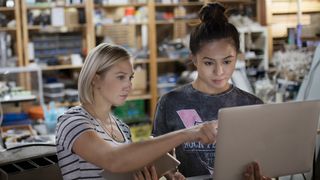Recent research into the US tech industry shows that while diversity is deemed important, active involvement in ensuring its increase is less apparent. In comparison, the tech industry in Australia is ramping up its diversity efforts.
Factoring in the relative nascence of Australia’s tech scene vis-à-vis the United States, this may not seem surprising. Although Australia can only claim one “unicorn” start-up with a female founder (whereas the United States has 16 of the world’s 23), support for women in technology in Australia has never been more apparent. The Australian venture capital industry is actively encouraging and supporting females as founders and investors through initiatives like their Diversity Handbook, and Australian VC firms are doing better than the United States on gender diversity measures.
Australian tech hubs are racing ahead, implementing more equal frameworks for all minorities. No doubt a significant challenge to diversifying the tech industry in the United States stems from the pervasive sense of the ‘boys club’ in American start-ups and larger technology companies.
There has been a big push to increase diversity in Australian tech companies. This weekend in Sydney, Vogue Australia is hosting their third annual Vogue Codes Summit which emphasises female innovation. Compared to Silicon Valley, Australian tech hubs are racing ahead, implementing more equal frameworks for all minorities. No doubt a significant challenge to diversifying the tech industry in the United States stems from the pervasive sense of the ‘boys club’ in American start-ups and larger technology companies. On the other hand, more women and minorities are shaping Australian start-ups during their most formative period, with 22 per cent of start-ups in Sydney being founded by women – compared to Silicon Valley’s 17 per cent, contributing to more diverse workplace environments from inception.
As the missions of large, global technology companies evolve to tackle broad issues like healthcare and poverty, the need for a diverse workforce increases. The tech industry in Silicon Valley has historically been preoccupied with niche technical questions that cater to a self-selecting market. Through broadening the scope of their work, tech companies will increase the proportion of minorities working on challenging, technical problems.
Women and other minorities are ready to take on this challenge. In the United States, the number of women studying computer science at university has increased. More members of the graduating class at Harvey Mudd, one of the country’s top technological institutes, in the computer science department identified as women, rather than men. Likewise, at the Massachusetts Institute of Technology, the computer science department’s graduating class nearly reached parity. Clearly, the problem is not a lack of talented female coders.
Australians are readily addressing the diversity issue in tech spaces. What women and other minorities need is for that conversation to continue.
Fundamentally, tech companies need to ask broad, interesting questions that will draw talented people from a wide variety of backgrounds. On this issue, the United States has much to learn from Australia.
Americans could begin by looking at SheStarts, an Australian accelerator for female-founded start-ups, or other institutionalised groups, including Women in Digital which pairs rookies with seasoned mentors, or Females in IT and Telecommunications which actively measures gender diversity data. Australians are readily addressing the diversity issue in tech spaces. What women and other minorities need is for that conversation to continue. The tech industry is not finished yet. Silicon Valley, especially, has a long way to go. But Australian tech spaces should take this chance to create an ideal, diverse workforce as a model for tech companies around the world






